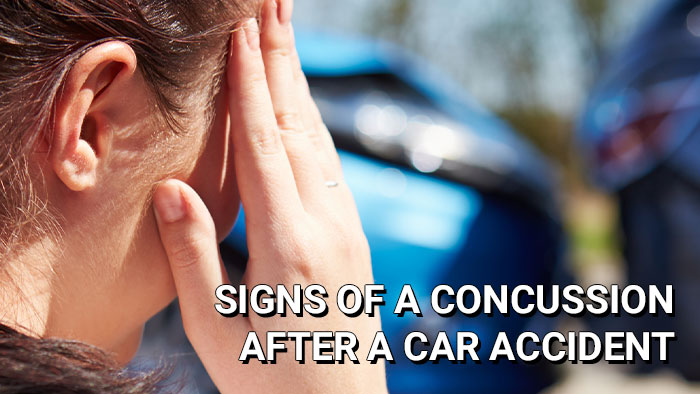
Concussions are commonly dismissed as simple bumps to the head that will go away on their own. However, these traumatic brain injuries (TBIs) can interfere with a person’s work, social life, and day-to-day activities.
Under New Jersey personal injury law, even a mild TBI may be compensable if it was caused by someone else’s negligence, such as in a vehicle accident.
As injuries, concussions may be difficult to establish because symptoms are often vague or delayed. In some cases, the effects of a blow to the head can take days to appear.
If you’ve recently suffered an accident and you think you may have a concussion, see a medical professional as soon as possible, and document all symptoms carefully.
Careful records will help your case should you need to file a lawsuit against an at-fault driver.
What are the Symptoms of a Concussion?
If you were in a car crash and your head was impacted or shaken up, look out for these concussion symptoms:
- Headache or a sense of pressure in the head
- Being dazed, confused, or “foggy”
- Ringing in the ears
- Dizziness or “seeing stars”
- Temporary loss of consciousness
- Loss of memory about the crash
- Slow response to questions
- Slurred speech
- Blurry vision
- Sensitivity to light or noise
- Nausea and/or vomiting
- Difficulty concentrating
- Cognitive problems
- Sleep problems
- Fatigue
- Irritability or mood swings
- Depression.
Tell your doctor about the signs you experience, get the necessary treatment, and then talk to a lawyer about potential compensation.
Dangers Of A Concussion
Medical professionals categorize concussions based these grades:
- Grade 1 concussion – no loss of consciousness, but other symptoms such as headache or amnesia may occur for 15 minutes or less
- Grade 2 concussion – symptoms occur for longer than 15 minutes, and there may or may not be a loss of consciousness that lasts no more than five minutes
- Grade 3 concussion – also called high-grade concussion, this involves a loss of consciousness for more than five minutes, alongside other symptoms that last more than 24 hours. This severe concussion brings the risk of permanent brain damage.
A high-grade concussion requires immediate medical attention, but doctors advise that you get any kind of head injury checked to rule out more serious, unseen injuries.
Further, any concussion regardless of severity may develop into post-concussion syndrome (PCS). This medical problem involves concussion symptoms that persist for a long time, usually weeks or months.
Patients with post-concussion syndrome typically need treatments to address specific effects, such as pain medications for headaches and psychiatric therapy for mental health symptoms.
Establishing a Concussion After an Auto Accident
A concussion may seem like a common injury which can be treated easily. Unfortunately, its impact on your life can be painful and costly.
To be compensated for your concussion following an auto accident, you’ll need to take careful steps to prove the injury, especially since insurance companies may undermine your symptoms.
- Don’t dismiss a blow to the head. Individuals who are injured in a collision usually don’t realize their injuries right after the crash. This is because the release of adrenaline in the body can mask the pain. Avoid the assumption that you are okay, and don’t confirm this with other parties. Consult with a doctor first, and go from there.
- Get a physician’s diagnosis. A formal medical diagnosis and treatment plan is essential for your own wellness and recovery, but it is also a crucial part of your case should you wish to pursue a legal claim. To diagnose a concussion, the doctor will ask about the symptoms you experience. They may also check your pupils’ reaction to light, your pulse and blood pressure, your speech, and your body’s reaction to stimuli. In more serious cases, a CT scan or MRI may be needed.
- Don’t lapse on your treatment. If your doctor has prescribed certain medications or therapies for concussion, follow that advice strictly. Again, this is for the sake of your health as well as your injury claim. Neglecting your medicine or missing doctor’s appointments could be taken as a sign that your injury was not “real.”
- Keep the documentation. Compile your medical records, prescriptions, bills, pharmacy receipts, and other documents relating to your injury. Also keep a note of any other losses you incurred due to your concussion, such as missed wages due to headaches.
- Consult with a lawyer. A personal injury attorney can guide you on your next steps in claiming compensation. You’ll also want to be represented by a lawyer if you are claiming against a well-resourced and experienced insurance company. Most personal injury lawyers in New Jersey charge nothing for an initial case consultation, so you lose nothing by talking to one.
Injured individuals in NJ highly trust the attorneys at The Grossman Law Firm. Through our firm’s legal guidance and representation, our clients have obtained maximum compensation in car accident cases, even when their injuries were complicated. Your consultation with us is free. Call us at (732) 625-9494 today.
